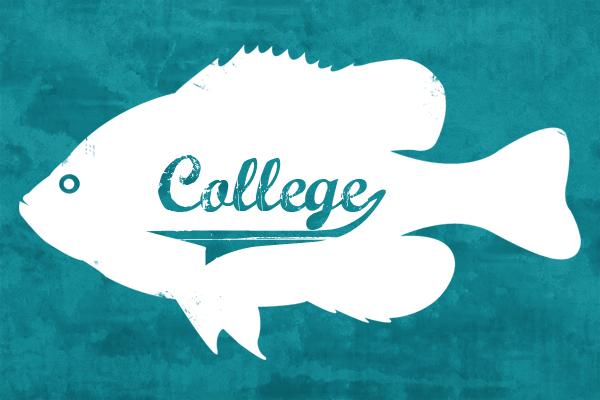By Dyer Whitt

Staff Writer
With the school year fully underway, college freshman embark on the journey of living on their own; managing time, money and responsibility.
Most of us can remember our first day of high school; nervous, anxious and a little bit awkward, being a freshman, or “fish.” Being a freshman meant having three grades above you to tell you what and what not to do, teachers always on your back, and stereotyped a helpless baby.
Unfortunately, high school is not your last time to be a “fish” in a plentiful sea of students. Upon graduating, many CHS students will choose to move on to college, where they will plummet from being the upper class, to back down at the bottom as a freshman. Being a freshman in college however, is quite different from being a freshman in high school.
“Being a freshman in college is extremely different; you’re living on your own without your parents and learning how to take care of your responsibilities, yourself and how to adapt to brand new things,” 2011 CHS graduate and LSU freshman Austin Frost said.
In comparison to high school, college is the exact same in the sense that you will face new challenges, new people and a different approach to school work.
Most college freshman admit that their study habits in high school were not the best, but as they began getting comfortable with the college lifestyle, students found a steady increase in their ability to get work done on time.
“My study habits have definitely improved, the trick to college is not getting behind, so as long as you pace yourself and do your work early and often everything works out,” 2011 CHS graduate and Texas A&M freshman Chris Roberts said.
College is more appealing to students because they can develop a major and actually use their knowledge for the benefit of a career down the road.
CHS 2011 graduate Avery Bruner attends Penn State and majors in business. One of the hardest decisions as a college student is deciding your major; it is the framework for any career.
“The reason I chose a business major was because it has many open opportunities for real world application,” Bruner said.
With an increase in workload outside of school and a decrease of time spent in school; the difference from high school and college is apparent in the sense students will be required to be more independent in order to be successful.
Change is present across the board as a freshman in college, according to Roberts, who also majors in business.
“The change for me was being financially responsible for myself; just taking care of myself and things without my parents,” Roberts said.
Independency shoots to a new level when you add in the thought of balancing complex college classes while also being a full time football player.
Freshman student athlete Onyeka “Oni” Omoile, a 2011 CHS graduate, faces the same dilemma at Iowa State University, where he plays offensive tackle for the Cyclones.
After coming off of an impressive 13-1 season with the Coppell Cowboys, the 6-3, 275-pound offensive lineman describes his schedule at Iowa State as hectic, but rewarding.
It is no doubt that the transition from high school to college is challenging, but with the addition of being a major prospect for the ISU football program, you can see where things can start piling on.
“It’s a grind you have to mentally prepare yourself for,” Omoile said. ““With school, tutors and mentors, 6 a.m. workouts, football practice, and a variety of community services deals, you really have no time to do anything until the weekend,” Omoile said.
Omoile’s time commitment, just like all college students, is pushed to the limits as most college freshman admit that the work load is overall a lot larger than high school.
Although college is a lot of work and a time commitment that must be prepared for, it is quite more than being a slave to professors and term papers.
“There is a lot of reward that comes with college, by far the most rewarding thing is making decisions for yourself and always being able to do what you want to,” Bruner said.
If there is anything worth knowing about how to prepare for college however, it is that if you want to succeed by the time you get to college, change your study habits now,” Roberts said.









